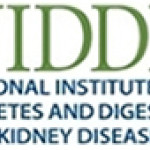- Industrie: Government; Health care
- Number of terms: 17329
- Number of blossaries: 0
- Company Profile:
The National Institute of Diabetes and Digestive and Kidney Diseases (NIDDK) conducts and supports research on many of the most serious diseases affecting public health. The Institute supports much of the clinical research on the diseases of internal medicine and related subspecialty fields, as ...
An infectious disease of the colon. Symptoms include bloody, mucus-filled diarrhea; abdominal pain; fever; and loss of fluids from the body.
Industry:Medical
Refers to conditions that happen suddenly and last a short time. Acute is the opposite of chronic, or long lasting.
Industry:Medical
Proteins in the body that control chemical reactions in the body, including energy production and metabolism.
Industry:Medical
The largest abdominal organ. The liver carries out many important functions, such as making important blood proteins and bile, changing food into energy, and cleaning alcohol and poisons from the blood.
Industry:Medical
The space behind the mouth that serves as a passage for food from the mouth to the esophagus and for air from the nose and mouth to the larynx, or voice box.
Industry:Medical
A 4-inch pouch attached to the cecum, the first part of the large intestine. The appendix’s function, if any, is unknown.
Industry:Medical
A waste product found in the blood that results from the normal breakdown of protein in the liver. Urea is normally removed from the blood by the kidneys and then excreted in the urine. Urea accumulates in the body of people with kidney failure.
Industry:Health care
A hormone that helps the body use glucose for energy. The beta cells of the pancreas make insulin. When the body cannot make enough insulin, insulin is taken by injection or other means.
Industry:Health care
A condition in which the blood vessels to the heart become totally or partially blocked by fatty deposits. When the blood supply is cut off or reduced, oxygen and other needed supplies can’t get through. Then heart muscle can die. Also called a myocardial infarction.
Industry:Health care
